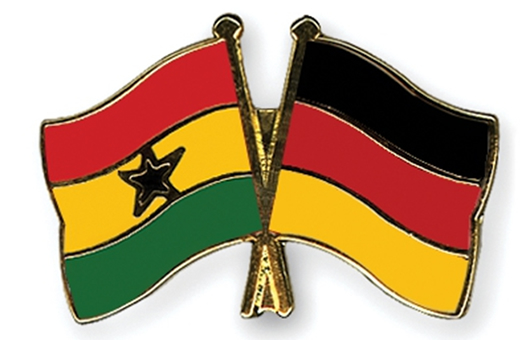 Ghana is to benefit from a €100 million grant under Germany’s” Compact with Africa” programme. The facility will be used to improve conditions for sustainable private sector investment, infrastructure, economic participation, and employment.
Ghana is to benefit from a €100 million grant under Germany’s” Compact with Africa” programme. The facility will be used to improve conditions for sustainable private sector investment, infrastructure, economic participation, and employment.
Tunisia and Cote d’Ivoire are two other African countries currently benefiting from the programme
This was made known by the Minister of Finance, Mr Ken Ofori-Atta, at a meeting with the Ghanaian community resident in Germany held in honour of President Nana Addo Dankwa Akufo-Addo, in Berlin last Sunday.
Path of progress
According to the Finance Minister, Ghana was chosen as a beneficiary of the Compact “because there is a new confidence that Ghana is coming back, and Ghana is back.
“We were nowhere near it (Compact with Africa Programme), but the work President Akufo-Addo has been doing resulted in the Germans saying, ‘why don’t we get Ghana involved in this?’ And, that is why we are here,” he said.
Mr Ofori-Atta noted that the development “was a real sign of confidence in us.”
The finance minister stated the facility was a sign of the response coming from the world in recognition of the path of progress Ghana had taken.
“We are beginning to see a sense of a regeneration, the Black Star is shining again; we certainly are not a poor country, as President Akufo-Addo said – we are also not chickens, as Aggrey said, we are eagles and, as such, we should fly,” Mr Ofori-Atta told the gathering.
We are fixing economy
The minister said having inherited an economy with a budget deficit of nine per cent, and a primary balance which was negative, which meant Ghana had to borrow to pay her debts; the Akufo-Addo government had put in place measures to fix and restore confidence in the country’s economy.
He said a new Commissioner of the Ghana Revenue Authority had to be appointed to bring dynamism in the collection of revenue.
Mr Ofori-Atta said the measures put in place to bring life to the economy had freed up fiscal space for the government’s programmes, as well as providing the stimulus package for struggling businesses.
“We abolished a lot of taxes for people from Abossey Okai to the Stock Exchange, so people can feel energised and get into self-employment,” he added.
Re-profiling debt
“What do you do when you inherit an economy with $30 billion of debt, paying GH¢10 billion every year in interest payments, and in every three months, you go into the market to get money meant for the private sector to pay interest on your debt and wages and salaries of workers?”, Mr Ofori-Atta quizzed.
The situation, he explained, led to the managers of the economy deciding to re-profile Ghana’s debt.
“Re-profiling means that instead of these debts maturing every 90 days, let us find a way to increase the tenure of maturity so that instead of the 91 days and five years, we move it to 15 years. It gives us some breathing room to enable us to do what we need to do to revive the economy,” he explained.
Mr Ofori-Atta was confident that the measures put in place by the government would reduce the budget deficit from 9 per cent to 6.5 per cent; increase growth rates from 3.6 per cent, the lowest in 22 years, to 6.3 per cent at the end of 2017.
“The primary balance will be positive, which means we will not borrow to pay our debts. Things have stabilised, interest rates are coming down, but there is still a lot of work to be done,” he said.
Source: Daily Graphic























